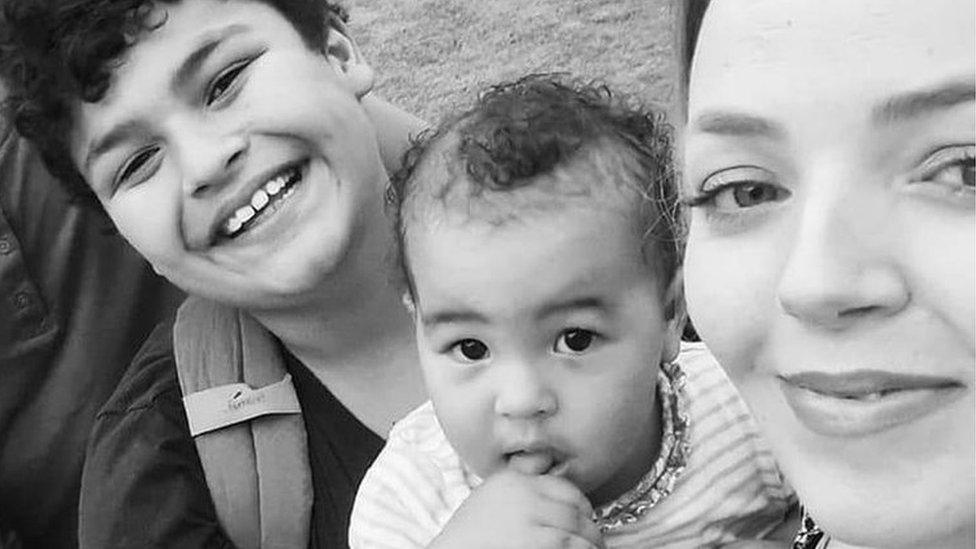Sudan evacuation: We have left our whole lives behind to escape
- Published
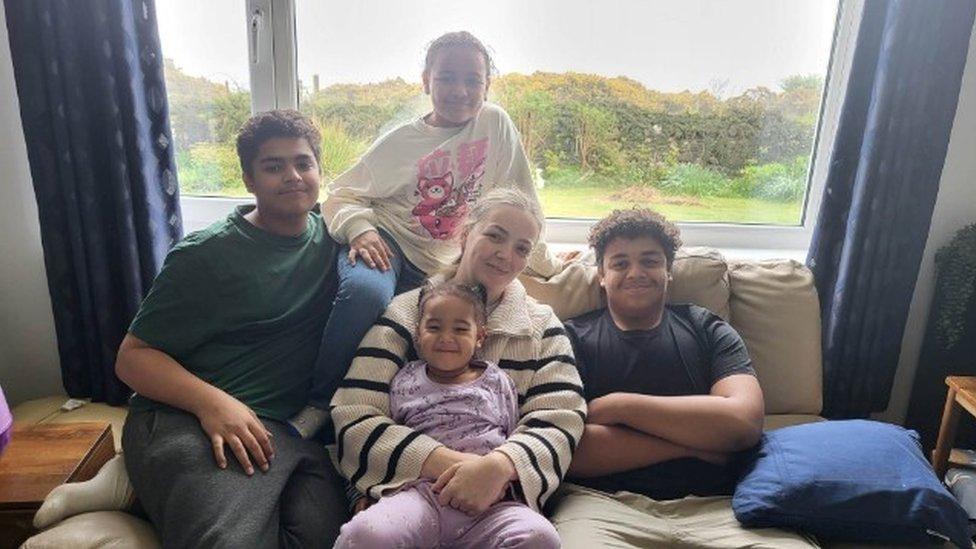
Jennifer McLellan and her children arrived on Islay on Friday - two days after they left Sudan
A mother who fled Sudan with her four children has spoken of her relief at being back home in Scotland.
But Jennifer McLellan said she was "heartbroken" to have left her husband, Mohamed, behind.
The English teacher and her children - aged three, eight, 13 and 15 - left Sudan on a UK government evacuation flight on Wednesday.
They finally arrived on Islay on Friday but Ms McLellan admitted they faced an "uncertain" future.
Rival factions of Sudan's military earlier agreed to renew a three-day ceasefire, shortly before it was due to expire.
The extension - for another three days - follows intensive diplomatic efforts by neighbouring countries, as well as the US, UK and UN.
But there are continuing reports of heavy fighting in the capital Khartoum.
Foreign nations, including the UK, have urged their citizens to leave the country as soon as possible.
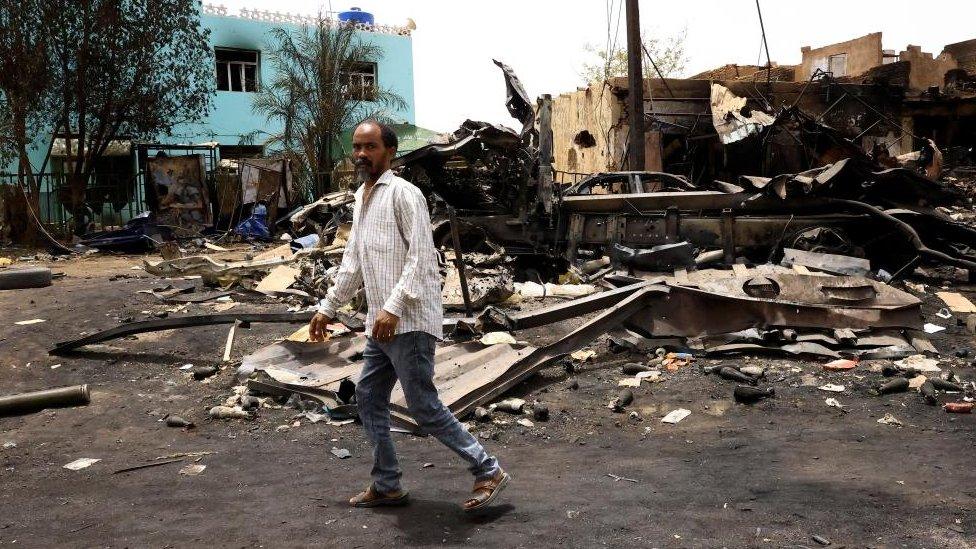
People in Khartoum are watching parts of the city being destroyed
Ms McLellan, who lives in the city, told BBC Scotland she was "so relieved" to be back home safely.
She added: "It has been a difficult journey to get here. We were well looked after along the way.
"A huge thank you to everyone who has supported us and to the military, who continue to work tirelessly to help others in this terrible situation."
Ms McLellan's husband had to stay in the country for family reasons, but hopes to make it to the UK soon.
She added: "We are obviously heartbroken to have left Mohamed behind and we pray for his safety and that we will be reunited some day soon.
"We can't even bear to think about the danger he is still in - and many others in Sudan."
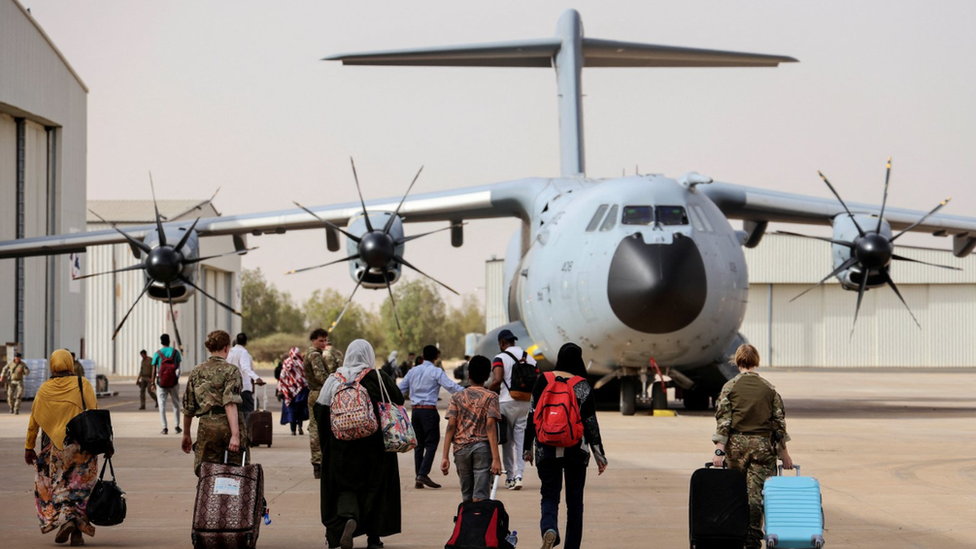
UK nationals had to make their own way to the Wadi Seidna airstrip unescorted
Many British nationals fleeing the fighting described how hotels were bombed and people shot in front of their eyes.
Ms McLellan, who has lived in Sudan for 16 years, recalled a perilous journey from Khartoum after leaving all their possessions behind.
She said: "We literally have come with the clothes we are wearing and a few hastily packed items in a carry-on bag."
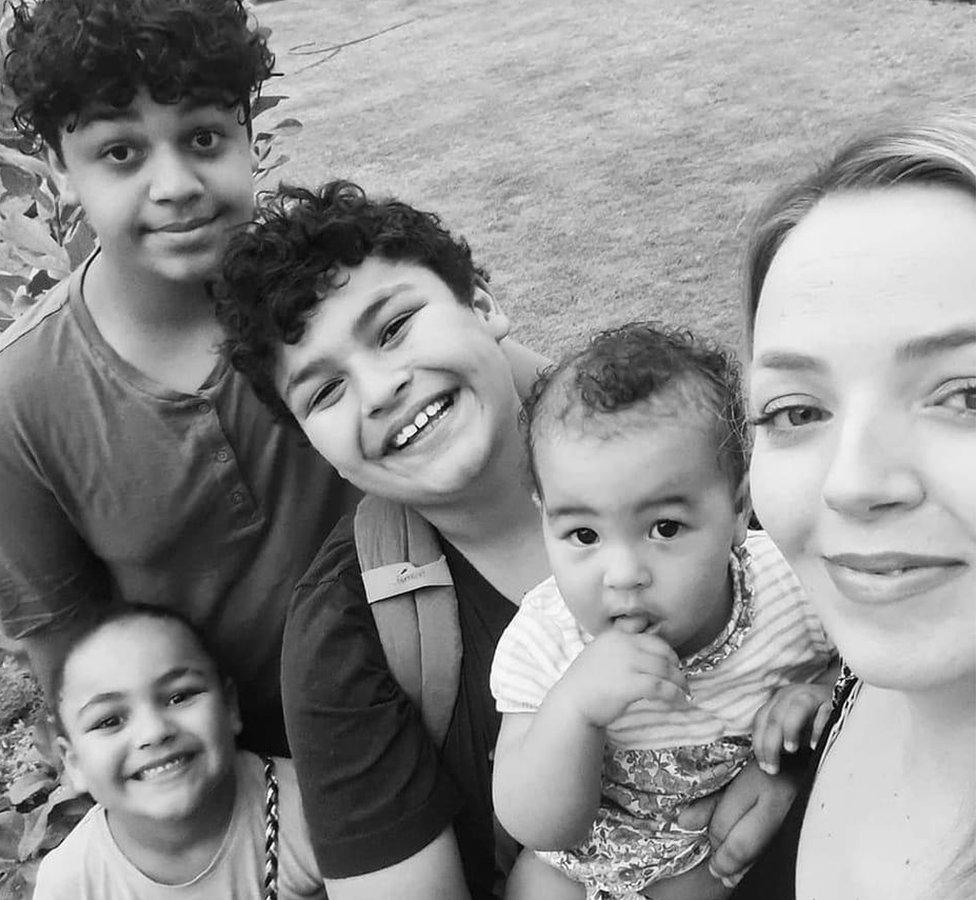
Ms McLellan lives in Khartoum with her husband and four children
The fighting broke out on 15 April as the result of a bitter power struggle between Sudan's regulary army and its Rapid Support Forces (RSF).
The military factions disagree about the country's proposed move to civilian rule, and in particular about plans to include the 100,000-strong RSF in the regular army.
Despite the relief of being back home Ms McLellan is fearful about what will happen in the coming weeks.
She added: "The future for us is unknown as we have left our whole lives behind.
"We have to get some rest and see what our next steps will be".
Related topics
- Published28 April 2023
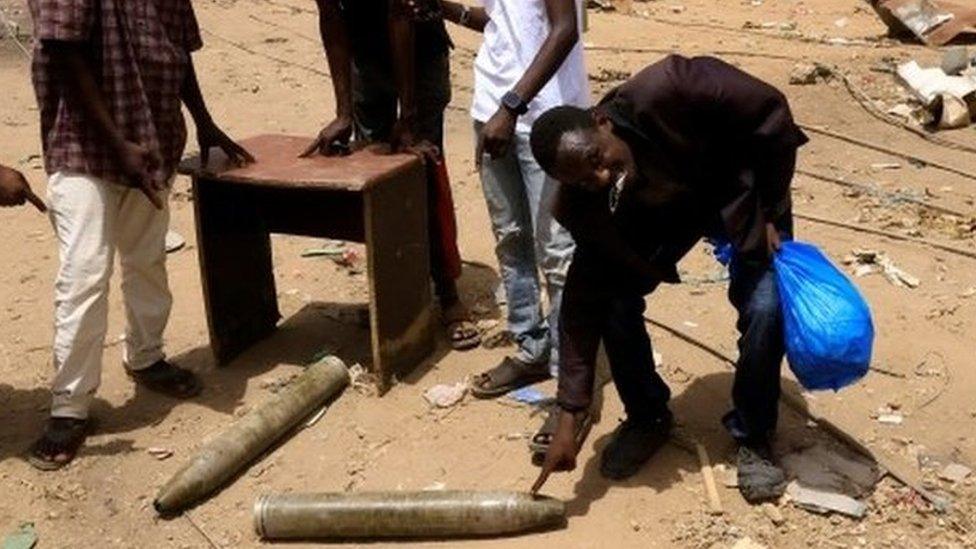
- Published26 April 2023
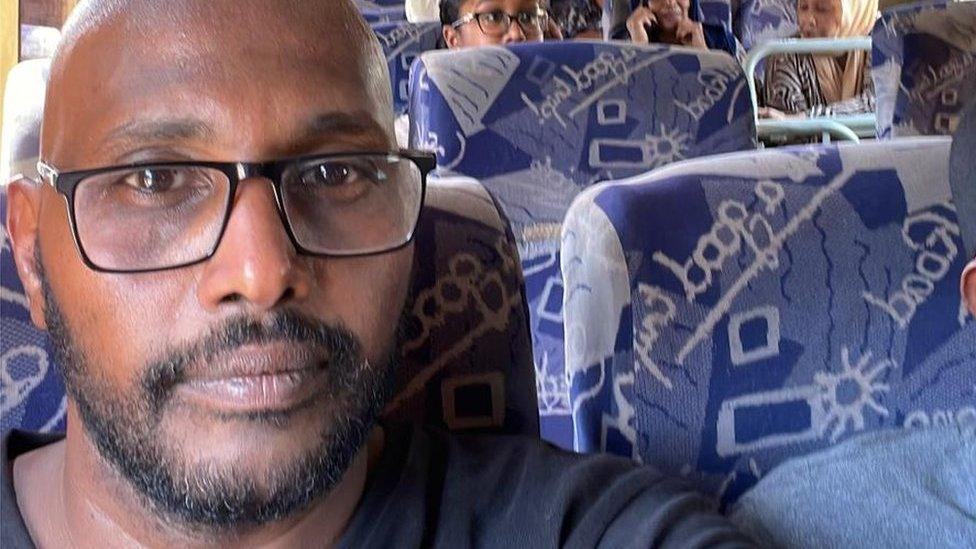
- Published25 April 2023
